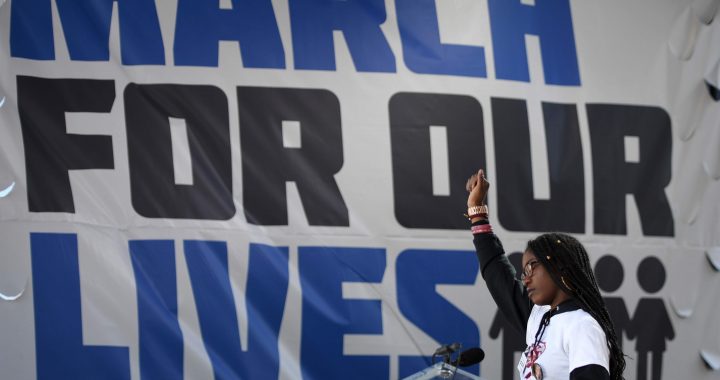FDA ‘black-box’ warning – In 2003, the U.S. Food and Drug Administration began warning of an increased risk of suicidal thoughts among youths taking anti-depressants. In 2004, the agency required a new, more stringent label when antidepressants were prescribed to those under 18.
Between 2003-04 the youth suicide rate jumped 14 percent – the steepest increase ever seen – while the number of antidepressant prescriptions for youths dramatically dropped during the same period: 20 percent for children 10 and under, 12 percent for 11-to-14-year-olds and 10 percent for 15-to-19-year-olds.
Paragraphs 29 & 30 read: “He stopped going to school and began attending an outpatient program, seeing a therapist and a psychiatrist and taking medication for depression and anxiety. He tried returning to school on a half-day basis, but soon became overwhelmed with makeup work and inquiries from classmates who heard rumors he had tried to kill himself. After a few days in school, Iain asked to be readmitted to the hospital, where he stayed for a week, his parents said.”
“But as summer approached, he began showing signs of improvement. He was easier to communicate with, did his chores when asked and his doctors believed they had found the right balance in his medication, his father said.”
Paragraph 32 reads: “Lain’s parents and friends say they do not know of any incidents that might have triggered what happened June 3, when his father found him in the basement. His death was ruled a suicide by hanging, according to the Cook County Medical Examiner’s Office. He did not leave a note.”
http://www.azcentral.com/news/articles/2009/07/05/20090705bullying.html
Bullied boy’s short life ends in suicide
Jul. 5, 2009 08:20 AM
Associated Press
CHICAGO – The bullying seemed inescapable.
His family and friends say it followed Iain Steele from junior high to high school
– from hallways, where one tormentor shoved him into lockers, to cyberspace, where another posted a video on Facebook making fun of his taste for heavy metal music.
“At one point, (a bully) had told (Iain) he wished he would kill himself,” said Matt Sikora, Iain’s close friend.
Iain’s parents know their son had other problems, but they believe the harassment contributed to a deepening depression that hospitalized the 15-year-old twice this year. On June 3, while his classmates were taking final exams, he went to the basement of his home and hanged himself with a belt.
His death stunned his quiet suburb west of Chicago and unleashed an outpouring of support for his parents, William and Liz, who say greater attention should be paid to bullying and its connection to mental health.
“No kid should be afraid for himself to go to school,” his father said. “It should be a safe environment where they can intellectually thrive. And he was, literally, just frightened to go to school, fearing what he would have to deal with on that day. And it was day after day.”
A school spokeswoman said she did not believe Iain was bullied. Police are investigating the allegations.
Nearly 30 percent of American children are bullied or are bullies themselves, according to the National Youth Violence Prevention Resource Center. Bullying can be physical, verbal or psychological and is repetitive, intentional and creates a perceived imbalance of power, said Dr. Joseph Wright, senior vice president at Children’s National Medical Center in Washington.
Soon, the American Academy of Pediatrics will for the first time include a section on bullying in its official policy statement on the pediatrician’s role in preventing youth violence.
Wright, a lead author of the statement, said the decision to address the issue was due to a growing body of research over the last decade linking bullying to youth violence, depression and suicidal thoughts.
Last year, the Yale School of Medicine conducted analysis of the link between childhood bullying and suicide in 37 studies from 13 countries, finding both bullies and their victims were at high risk of contemplating suicide.
In March, the parents of a 17-year-old Ohio boy who committed suicide filed a lawsuit against his school alleging their son was bullied. Instead of seeking compensation, they are asking the school to put in place an anti-bullying program and to recognize their son’s death as a “bullicide.”
—
Iain Steele enjoyed riding his skateboard, his father said, but after hip surgery in 8th grade limited his mobility, he picked up the guitar and impressed an instructor with his musical talent.
He was revered by younger kids in the neighborhood, often fixing their skateboards, settling their disputes and including them in games. “He was a very gentle, kind kid, compassionate to a fault,” his father said. But Iain’s embrace of heavy metal set him apart from classmates. He let his hair grow to shoulder-length and wore mostly black clothing, including jeans with chains and T-shirts of heavy metal bands with dark, sometimes morbid lyrics.
For this, his classmates at McClure Junior High School often called him “emo” – a slang term for angst-ridden followers of a style of punk music, said Sikora, 15.
The bullying could also be physical, Iain’s friends and parents said. In 8th grade at McClure, one bully pushed Iain into a locker while he was on crutches and accused him of faking an injury to get out of gym class. Iain rarely shied away from his tormentors, however, and in this case, he punched the bully in the jaw, his father said.
“He was mainly bullied only because he was different, or hurt, or stupid things like that,” said Sikora. “He never bothered anybody. … It was all just because he was different and an easy target.”
William Steele said his son had trouble ignoring the bullying because it “was just sort of relentless.” It got to the point where the father sat down with the principal at McClure and with a bully’s mother. But the harassment did not subside.
Steele said, “(Iain) had a real trust issue because he felt like, particularly at McClure, the system let him down, that it didn’t deliver on its promise to protect him from bullying.”
McClure Principal Dan Chick said in an e-mail “the District 101 community is deeply saddened by this recent tragedy of losing one of our children.” Chick said he takes bullying very seriously but declined to discuss details of Iain’s case because of privacy issues.
“As with all situations, I investigated this specific matter and took appropriate actions within the limits of my authority,” Chick said.
After graduating from McClure in 2008, Iain began attending the south campus for freshmen and sophomores at Lyons Township High School, where he found new friends – and new tormentors. A new bully emerged who at first acted friendly but then posted a homemade video on Facebook pretending to be Iain playing heavy metal on guitar.
“It was like a public humiliation to (Iain),” Sikora said.
The family of the student did not respond to requests for comment.
Jennifer Bialobok, a spokeswoman for Lyons Township High School, said “bullying is obviously not tolerated at LT,” but added, “I don’t think we’re naive enough to think that bullying behavior doesn’t exist.”
Two years ago, Lyons Township created a “speak up line” in which students can anonymously report “inappropriate or unsafe behavior,” and the school hangs posters defining bullying and explaining how to report it, Bialobok said. If any student reported being bullied, a thorough investigation would take place, with consequences ranging from parental notification to out-of-school suspension, she said.
Bialobok said she could not discuss Iain’s case because of student privacy laws, but, “we don’t believe that bullying was an issue while Iain was attending LT. Counselors and a host of other support personnel worked routinely to make his experience at LT a positive one.”
Local police have not documented incidents of bullying involving Iain but are still conducting interviews, Deputy Chief Brian Budds said.
—
By this winter, Iain’s mental health had begun a downward spiral, his parents said. In February, he told them he was having suicidal thoughts and asked to be admitted to the hospital.
He stopped going to school and began attending an outpatient program, seeing a therapist and a psychiatrist and taking medication for depression and anxiety. He tried returning to school on a half-day basis, but soon became overwhelmed with makeup work and inquiries from classmates who heard rumors he had tried to kill himself. After a few days in school, Iain asked to be readmitted to the hospital, where he stayed for a week, his parents said.
But as summer approached, he began showing signs of improvement. He was easier to communicate with, did his chores when asked and his doctors believed they had found the right balance in his medication, his father said.
“He seemed to be in a calm, happy place,” he said.
Iain’s parents and friends say they do not know of any incidents that might have triggered what happened June 3, when his father found him in the basement. His death was ruled a suicide by hanging, according to the Cook County Medical Examiner’s Office. He did not leave a note.
Looking back, Iain’s parents wonder what factors besides bullying may have contributed to their son’s depression.
Iain’s favorite heavy metal bands, such as Lamb of God and Children of Bodem and Bullet for My Valentine, often have lyrics with dark messages. One Bullet for My Valentine song is about being bullied, and another song contains the refrain: “The only way out is to die.”
Also, Iain was deeply hurt this spring after a brief relationship with a girl he met in his outpatient program. The two exchanged text messages, but her parents and therapists advised against them dating and about two months ago barred her from having communication with him.
Still, Iain’s parents remain convinced bullying played a significant role in their son’s depression. As Iain’s story spread through the community, many people approached Liz Steele to describe their own experiences with bullying, depression or suicide, she said.
“A lot of people don’t want to talk about mental health or bullying because it’s a difficult thing to talk about, but we need to talk about it,” she said. “It shouldn’t be a stigma.”
Meanwhile, the community has rallied behind the Steeles. In Iain’s memory, his classmates tied white ribbons around hundreds of trees in the neighborhood. On June 10, about 500 people attended a memorial service at First Congregational Church of Western Springs.
Rich Kirchherr, senior minister at the church, said the community has felt a “deep and abiding sadness” since Iain’s death. Kirchherr said few people seemed aware that Iain was bullied.
“There is an acknowledgment now, as people have discovered that Iain might not always have been treated with the respect that every person deserves,” Kirchherr said. “Many people were surprised to hear that.”
Friends have established several Facebook groups in his memory, including the “Iain Steele Remembrance Group,” which has more than 700 members. The commentary on the group’s wall was summed up by a Lyons Township High School student who said she did not know Iain but had learned an important lesson from his death.
“I’m learning to treat everyone with respect, even people who I don’t know well or people who I might not get along with,” she wrote. “If there is anything good that can come out of this tragedy, the responsibility lies with us to live with kindness and be aware that life is fragile.”




